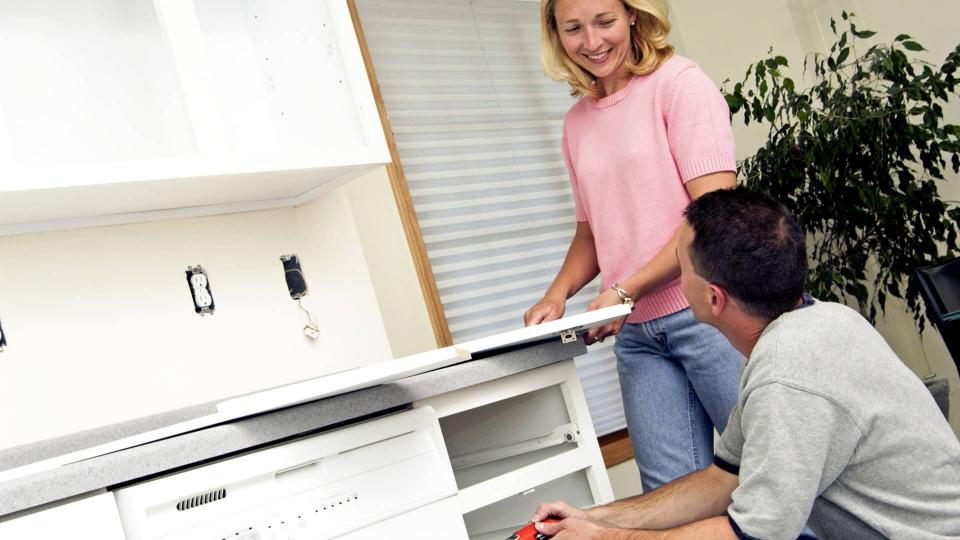Avoid These 11 Money Mistakes People Make in Their 40s

Young people aren't the only ones with money problems -- people in their 40s experience financial setbacks as well.
Support Small: It's Not Too Late To Nominate Your Favorite Small Business To Be Featured on GOBankingRates -- Extended to June 5
Although you might have a few cars in the driveway, a house you can call your own and a solid retirement savings plan, you're still susceptible to financial mistakes.
Read about the biggest financial mistakes you're probably making.
Last updated: June 4, 2021

1. Not Having a Plan for Your Money
Although 67% of Generation Xers surveyed do have a financial plan, only 21% have a written plan, according to a Charles Schwab study.
Of those who have a written plan, 64% worked with a financial advisor to develop it.
If you're part of the statistic that doesn't have a plan, it's time to take action on your retirement plan.
This Is It: The Ultimate Financial Planning Guide

Solution
The average age to retire in the U.S. is from 65 to 67, according to an interactive map created by Aperion Care, an assisted living, skilled nursing and therapy provider. When you're in your 40s, you're likely a mere 20 or so years from retirement -- and it's imperative to have a financial plan in place.
Look at getting help from a professional to plan your financial future as a worthwhile investment -- one that can help you achieve the retirement you deserve.
Find Out: The 30 Best Jobs for Early Retirement

2. Not Maintaining Enough Liquidity
Only 31% of Gen Xers surveyed have an emergency fund that will cover three months of living expenses, according to the Schwab study.
For those who don't have emergency cash on hand, unexpected expenses, such as car repairs or medical bills, will have to be paid with credit cards or retirement funds -- solutions that will either dig you deeper in debt or result in taxes and penalties on funds earmarked for your golden years.
Relevant: Things To Cut Out Right Now To Save Money During the Health Crisis

Solution
Instead of creating more debt in an emergency, start building an emergency fund.
Set up a savings account at the bank where your primary checking is located. Arrange to have a certain percentage of funds -- for example, three percent -- automatically deducted and transferred to savings each time you get paid. Within a year, you could be well on your way to building a helpful fund.
Find Out: Why I Talk Openly About My Money Mistakes

3. Letting Your Emergency Fund Fall Behind Your Growth and Expenses
Even if you've had an emergency fund in place for years now, don't pat yourself on the back too hard. Many people realize in their 40s that their emergency funds now fall woefully short of supporting their larger incomes and budgets.

Solution
Whether your cash reserves have kept pace with your budget or not, when you've reached your 40s, it's time to maximize the growth of your emergency fund while keeping those funds liquid.
One way to do this is to commit to funneling at least a portion of your extra earnings, such as bonuses, to your emergency fund.
Related: 25 Retirement Planning Mistakes That Waste Your Money

4. Getting Complacent About Carrying Consumer Debt
It's easy to get too comfortable when you're tucked into a good job and cozy home. But don't get complacent about carrying consumer debt, which can entangle you in a vicious cycle of not being able to pay your balance in full and having to pay repeated interest charges.
According to the Schwab study, only 38% of Gen Xers surveyed could agree that either they had no credit card debt or they paid their credit card in full each month.

Solution
Limit your exposure to debt, and don't use a current position of strength to justify putting yourself in a precarious position. Just because a creditor is willing to extend credit to you to make a non-essential purchase doesn't mean you should take the bait.

5. Prioritizing Paying Off the Mortgage
Some people crave the security of owning their home free and clear, but putting your mortgage ahead of other financial obligations is almost always a bad idea. When the term of your loan or the interest rate are unsatisfactory, you can choose other options to make more mortgage more manageable, such as refinancing.

Solution
Paying off your home will take away cash that could be used more wisely. And once you pay off your mortgage, you'd have to either sell or tap into your home's equity to access its value.
Instead, you might want to use liquid assets to pay down all your other debt, catch up on your retirement savings and start saving for your child's college.

6. Assuming Remodeling Will Add Value to Your Home
One person's treasure is another person's trash, but that luxurious bathroom remodel you feel brings a little slice of heaven to your humble cottage-style home might be exactly the thing a potential buyer will want to rip out and redo.
Don't count on others to value remodeling and renovations the same way you do -- over-customization can lower your home's value.

Solution
Instead, stick to the home renovations that will pay you back. For example, information on the HGTV website details the top 15 home improvements that pay off. The top five include completing a minor bathroom or kitchen remodel, punching-up the outdoor landscaping, updating the front entry of your home and converting attic space to a bedroom.

7. Putting Your Child’s College Ahead of Retirement Savings
When your family, friends and neighbors are putting their kids through college, the pressure is on to do the same. In fact, according to a T. Rowe Price study, Parents, Kids & Money, more parents are saving for their children's college education -- 53% -- than for their own retirement -- 49%.
The study also found that parents are more likely to pull from their retirement savings than from their kids' college funds and that funding their children's education is the second most likely reason they pull from their retirement savings, with paying off debt in the lead. But if you're behind on your retirement savings, funding your kids' education is the wrong move.

Solution
For college money help, your children can take out a loan for their tuition -- but you can't take out a loan to live on during retirement. It's like putting on your own oxygen mask first in case of an airplane emergency -- don't help the kids until you've helped yourself. Otherwise, you might find yourself struggling during retirement.

8. Dipping Into Your Retirement Funds
When you dip into your retirement funds, even with the best of intentions, you take away the time that makes long-term savings so effective.
For example, when you make a hardship withdrawal from a defined contribution plan, you might be blocked for contributing for up to six months afterward, which puts that particular retirement savings vehicle on hold. Plus, cashing out your 401(k) before you're 59½ usually means an ugly 10% penalty on top of income taxes.

Solution
The power behind retirement savings is time -- time for interest to work its magic and time for the market to lean your direction over time. To avoid withdrawing retirement funds, have an emergency fund in place that can serve as your go-to when a financial crisis strikes.
Check: How Much You Should Have in a Retirement Fund at Every Age

9. Not Diversifying Your Investments
When you have too much riding on a specific investment area, any losses you might experience can be magnified.
When you utilize a diversification strategy when investing money, you effectively take away the risk of relying on one type of investment too much. Although you can't eliminate risk by choosing to diversify, you do still have time when you're in your 40s to recover from the downturns your portfolio might experience.

Solution
Have a variety of asset classes in your portfolio and spread your investments over various geographical areas.
For example, if you like investing in healthcare stocks and those aren't performing well in the U.S., look at investing in healthcare stocks in other countries. You can also make sure you're investing in different sectors of the stock market; for example, don't put all your money in healthcare.

10. Thinking That Being Risk-Averse Is a Bad Thing
Although some risk is a good thing -- because, after all, without risk, there is often no reward -- you don't want to engage in so much risk that you end up losing far more than you can recover.
For example, if all of your holdings are focused on a certain industry and that industry experiences a downturn, your portfolio will suffer greatly.

Solution
You can be risk-averse and still profit.
Simply do things such as avoid digging yourself into unnecessary debt, maintain an emergency fund and diversify your portfolio. Then, if disaster strikes, your finances can absorb the shocks and keep plugging along.

11. Thinking That Your Best Earnings Are Yet to Come
It's easy to assume your income will always grow the way it has so far in your career -- but that's not necessarily the case. According to numbers provided exclusively to CNBC Make It by Payscale, pay growth for men with a college degree basically stops at 49. For women, earnings peak much earlier -- around 40 -- and then level out.
Unless you're a 40-something with a profitable side hustle or you're an exception to the earnings rule, your earnings have already peaked or will before you're 50.

Solution
Forty-somethings should expect a flattening income curve and plan accordingly.
Consider other ways to make additional income and bank it. For example, it's a realistic goal to plan to earn $500 to $2,000 per month from a side hustle, according to comments made by author and entrepreneur Chris Guillebeau in a recent Forbes interview. Guillebeau has studied the art of the side hustle for years and has interviewed many successful side hustlers.
More From GOBankingRates
Cynthia Measom contributed to the reporting for this article.
This article originally appeared on GOBankingRates.com: Avoid These 11 Money Mistakes People Make in Their 40s
